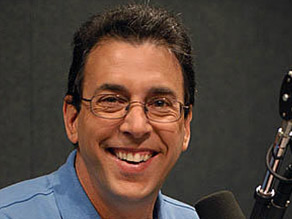Clark Howard: Dow on a high, but keep your expectations low
- Story Highlights
- Howard says it may take 10 years for Americans to recover from excesses
- Average American will see short-term decline in standard of living during a recession
- Howard says people need to change expectations about government, lifestyles
ATLANTA, Georgia (CNN) -- Is it over yet? Is the tough national economy healed? Is it time to sing, "Happy days are here again"?

Clark Howard: "We must change how we live and lower our expectations about services" from the government.
That's the message you'd get from watching a lot of media coverage about the stock market these days. But it's a reductionist response; much television news poses a 20-second sound bite answer to what's really an onion with so many layers.
On the one hand, it's clear that a lot of companies are reporting good profits. The Dow Jones industrial average, an index that tracks a mere 30 companies, is one economic indicator that has now topped 10,000 with a lot of ballyhoo. Yet on the other hand, what some people consider the true measure of unemployment -- known as U6 -- is still hovering near 17 percent.
Interestingly, the Dow first topped 10,000 in 1999. That means we've gone nowhere fast as investors for the last decade. Throw in the housing market's bubble, peak and bust, and the budget deficit at the federal level, and you'll see that we are in a world with conflicting signals. ![]() Watch Howard tell you how to weather the market's ups and downs »
Watch Howard tell you how to weather the market's ups and downs »
Our entire national economic dilemma was a long time in the making, with overspending on the personal, corporate and government levels. The solution? We need to change our expectations about government and our own lifestyle.
Pointy-headed economists debate about whether we're having a "V," "W" or "L" recession. Just trace the letter and you'll get an idea about how each economic model plays out. But only in hindsight can you be sure which is correct.
My guess is it will take at least a decade to work off the excess of Americans being borrowing fools in the name of lifestyle. So that may mean that our house purchases get smaller, our cars get a little older and we have fewer possessions in the coming years.
Don't Miss
The reality is that the average American will see a short-term decline in their standard of living during a recession. A drop in the standard of living can be defined as only going out to dinner once a month instead of three times a week, or going from eating steak every week to "Who can remember the last time we ate that?!" Is that really so bad?
In the long run, our adaptability will help us survive. For example, if the brand-name paper towels are too much at the supermarket, buy the store brand. That's called brand substitution. Of course, some people get hit with financial Armageddon and that goes way beyond your personal taste in paper towels.

Just know that it will take years to work through all the excess. However, we can deal with more than we give ourselves credit for. We must change how we live and lower our expectations about services we expect government to provide. Deficit spending on Medicare, Medicaid and Social Security is unsustainable.
The only solution is to get your own financial house in order by working off debt. The economic hurt is not a cute story with a tidy ending, as some news outlets would have you believe.

 Sit tight, we're getting to the good stuff
Sit tight, we're getting to the good stuff